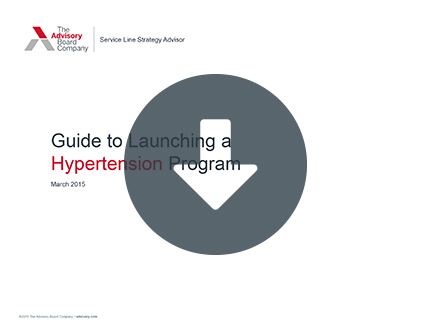Auto logout in seconds.
Continue LogoutNearly two-thirds of black men were able to get their blood pressures down to healthy levels through a community-based intervention implemented in a setting not usually associated with health care—barbershops, according to a study published in the New England Journal of Medicine.
May 24 webcon: How to optimize your CV physician and patient referral strategy
Study details
For the study, researchers observed 319 black men who had hypertension, which is defined as an average systolic blood pressure of 140 mm HG or higher, and were clients of 52 Los Angeles-area black-owned barbershops. The barbershops were randomly assigned to an intervention or an active control group.
In the intervention group, a pharmacist visited the barbershops once a week and prescribed blood pressure medication to the clients. The pharmacist also followed up with clients to ensure they were taking the medicine. Barbershops in the intervention group also had blood pressure monitoring machines that would send each client's readings directly to their doctors and pharmacists.
In the active control group, staff at the barbershops would provide the clients with information about how they could modify their lifestyles to address their hypertension, as well as encouragement to see their doctors.
Overall, the researchers found that, after six months, about 64% of clients at barbershops in the intervention group saw their blood pressures drop to healthy levels. In comparison, around 12% of clients at barbershops in the active control group saw their blood pressures decline to healthy levels.
The study authors wrote, "Among black male barbershop patrons with uncontrolled hypertension, health promotion by barbers resulted in larger blood-pressure reduction when coupled with medication management in barbershops by specialty-trained pharmacists."
Discussion
Ronald Victor, lead author on the study and associate director of the Cedars-Sinai Smidt Heart Institute said the findings show that "lives can be saved" by providing "convenient and rigorous medical care to African-American men."
Ciantel Adair Blyler, a co-author of the study and a pharmacist who participated in the interventions at the barbershops, said the researchers had "expected the intervention to be effective," but didn't expect "the magnitude of the effect we ultimately saw." Blyler said, "The hurdle we had to get over was getting [the clients] to trust me, to trust that the medication I was prescribing was good for them, that it wasn't an experiment and I wasn't somehow financially benefiting from drug companies." Ultimately, though, Blyler said she believes the intervention succeeded because of the trust and respect earned by "meet[ing] people where they are."
To that effect, Eric Muhammad—owner of A New You Barbershop, which participated in the study—said, "There's open communication in a barbershop. There's a relationship, a trust. We have a lot more influence than just the doctor walking in the door."
Willie Lawrence, a blood pressure specialist and spokesperson for the American Heart Association, said the study shows that "you don't need cardiologists" to improve people's blood pressure. "We can partner with others in the community and get this epidemic under control," he said.
Joseph Ravenell from NYU Langone Health, said the intervention could be expanded to other community centers. "Churches, beauty salons, and nail salons may be alternative community-based venues where this intervention can be replicated," he said, adding, "The key characteristic of a successful venue for this kind of intervention is that it is a trusted place for the community of interest" (Abram, Kaiser Health News, 3/12; Lou, MedPage Today, 3/12; Marchione, AP/Sacramento Bee, 3/12; Commins, HealthLeaders Media, 3/12).
May 24 webcon: How to optimize your CV physician and patient referral strategy
Join us on Thursday, May 24 at 1 pm ET to learn how to build an effective physician referral strategy and attract patient consumers to support CV program growth.
Don't miss out on the latest Advisory Board insights
Create your free account to access 1 resource, including the latest research and webinars.
Want access without creating an account?
You have 1 free members-only resource remaining this month.
1 free members-only resources remaining
1 free members-only resources remaining
You've reached your limit of free insights
Become a member to access all of Advisory Board's resources, events, and experts
Never miss out on the latest innovative health care content tailored to you.
Benefits include:
You've reached your limit of free insights
Become a member to access all of Advisory Board's resources, events, and experts
Never miss out on the latest innovative health care content tailored to you.
Benefits include:
This content is available through your Curated Research partnership with Advisory Board. Click on ‘view this resource’ to read the full piece
Email ask@advisory.com to learn more
Click on ‘Become a Member’ to learn about the benefits of a Full-Access partnership with Advisory Board
Never miss out on the latest innovative health care content tailored to you.
Benefits Include:
This is for members only. Learn more.
Click on ‘Become a Member’ to learn about the benefits of a Full-Access partnership with Advisory Board
Never miss out on the latest innovative health care content tailored to you.

